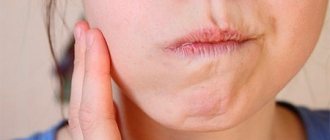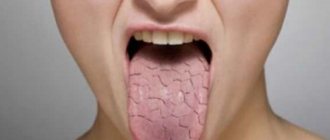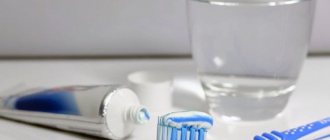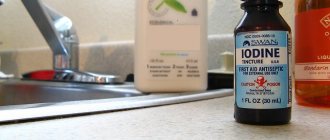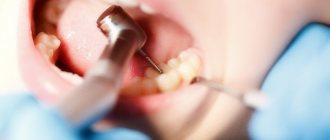Sometimes different tastes appear in the mouth or on the tongue that do not correspond to what we eat. This usually indicates disorders in our body and often prevents us from enjoying food. The sensations from what touches the tongue are transmitted to the brain, where they are recognized as sweet, sour, bitter or salty. Over time, these sensations are leveled out, that is, they decrease. Perhaps the taste of soda in the mouth may indicate some disorder in the body. Therefore, it is necessary to take a closer look at the reasons why such a symptom appears.
Quite often, the taste of soda in the mouth signals that there are some problems in the body.
In general, the appearance of any taste in the mouth is a rather subjective sensation. And if for someone the appearance of some unusual taste may be associated with soda, then another person may not feel it. Therefore, the occurrence of any unusual sensation in the mouth, especially when it does not go away for a long time, is a signal for us of some kind of disorder in the body and, as a result, requires a visit to the doctor. The appearance of the taste of soda can also be characterized by the following sensation - dry mouth. And if you have it, it means something happened to your body. Examples of what may happen are given below.
Diseases that cause unusual sensations in the mouth
If you feel the taste of soda in your mouth, which is accompanied by bitterness, this indicates problems with the liver and biliary tract. Bile should go into the intestines, but if any pathologies occur, it begins to accumulate in the bile ducts, after which it is thrown through the stomach and esophagus into the mouth. In this case, you should consult a doctor.
The taste of soda can appear due to overeating, when the intestines “get tired” of constant work and begin to take breaks.
Long-term use of certain medications can also cause this sensation. If there is a sweet taste mixed in, then diabetes may be the cause.
Excessive consumption of alcohol, and many have probably experienced this themselves, causes extremely unpleasant sensations in the oral cavity the next day due to a lack of fluid in the body. Other common causes of soda taste include iodine overdose and thyroid problems.
The taste of soda with an unpleasant odor indicates hypoacid gastritis. A small amount of gastric juice prevents food from being digested, which after a while causes discomfort. If in addition you experience a metallic taste, it is possible that your gums are bleeding.
It is necessary to consult a doctor - a dentist-therapist and an endocrinologist
In any case, if such a symptom appears and any other accompanying signs, you should consult a doctor. It is best to undergo a full examination in order to prevent the occurrence of a serious disease in the early stages.
The taste of soda should sometimes be considered a symptom of pathology that requires us to take certain actions!
Taste of soda in the mouth during pregnancy
During pregnancy, the functionality of taste buds changes in all women. Some people say they have a soda taste in their mouth during pregnancy. Most often this happens due to improper diet and nutrition of the expectant mother. During pregnancy, one of the key factors is a healthy diet with the right regimen. And as sometimes happens, pregnant women completely lose sight of this and then reap bad consequences, both on themselves and on the child. Feeling severe hunger during pregnancy, a woman tries to satisfy it with different foods in large quantities. This method of nutrition begins to overload the digestive system and the process of digesting food begins to slow down, which negatively affects the fragile body. Due to such a neglectful attitude towards its nutrition, a weakened body is susceptible to problems with the liver, gastrointestinal tract and other organs.
Other Causes of Bad Taste
Why else does this symptom occur? It can be triggered by the following factors:
- Aging.
- Dehydration (dehydration).
- Smoking.
- Injuries to the mouth or tongue.
- Upper respiratory tract infections.
- Sinusitis.
- Pharyngitis or sore throat.
- Pregnancy, and as a result hormonal changes.
Pregnant women tend to become more sensitive to different odors. During pregnancy, women may experience new taste sensations, including the taste of soda. This problem occurs if a pregnant woman is careless about her diet. In addition, women's consumption of special prenatal vitamins may disrupt normal perceptions.
Many medications and therapeutic procedures change taste sensations because they affect nerve endings and the brain’s perception of external stimuli:
- Antibiotics.
- Neurological drugs.
- Medicines prescribed for Alzheimer's disease.
- Medicines for the treatment of the cardiovascular system.
- Chemotherapy drugs.
- Antidepressants.
- Medicines for the treatment of tuberculosis.
Rarer disorders that cause changes in taste in the mouth:
- Brain damage and neurological disorders.
- Using dental appliances such as braces.
- Allergic reactions.
- Consequences of radiation therapy.
- Autoimmune disorders.
- Performed ENT surgeries.
- Deficiency of certain microelements and vitamins (zinc, vitamin B12).
A soda taste in the mouth can be a temporary symptom or a chronic condition associated with health problems.
If this feeling is temporary, some home remedies can help relieve this unpleasant feeling:
- Maintaining oral hygiene. It is important to brush your teeth while also cleaning your tongue to remove any bad taste.
- Drink plenty of fluids. Drinking water and fruit juices such as orange juice and lemonade can help get rid of the taste in your mouth.
- Eat more fruits and vegetables. Citrus fruits (oranges, lemon), grapes, and various vegetables promote the formation of saliva, which helps wash away the unpleasant taste in the mouth.
- Rinse your mouth with salt water. This often helps get rid of an unpleasant taste in the mouth.
If these home remedies do not eliminate the soda taste, you should rule out possible health problems, especially if you have other related symptoms.
Source: sodalab.ru
There is rarely a person who is not familiar with the unpleasant taste sensations that periodically occur in the oral cavity. and the taste of soda is one of the most common of them. It can appear as an independent symptom or in combination with others. It is immediately worth noting that such conditions are not manifestations of the norm, but are evidence of problems in the human body. Let's consider when the taste of soda in the mouth indicates pathological conditions. Most often, its causes lie in impaired metabolism and dysfunction of the gastrointestinal tract.
The combination of the taste of soda in the mouth with a feeling of bitterness may indicate inadequate functioning of the biliary system, which includes the liver and biliary organs. The human body is designed in such a way that bile is formed in the liver and collected through the bile duct system into the gallbladder, from which it is released into the duodenum, triggered by food intake. In various pathological conditions, the release of bile from the gallbladder can be difficult for a number of reasons. And when this happens, the secretion enters the cavity of the stomach, and from there it is thrown into the esophagus and oral cavity. You need to understand that such symptoms will not go away on their own. Compliance with a special diet, nutrition regimen and the use of medications prescribed by an experienced doctor will help normalize the functioning of the biliary organs and remove the taste of soda and bitterness in the mouth.
Another reason why a soda taste appears in the mouth may be insufficient intestinal activity. In which too much food can provoke a decrease in peristalsis, which leads to stagnation of food and the mouth suffers from a feeling of soreness.
Among other fairly common causes of an alkaline taste in the mouth is long-term use of medications and hormonal substances. These sensations come and disappear after completion of treatment or some break between courses.
Sometimes patients complain not only about the soda taste in the mouth, but also about its combination with a feeling of sweetness. With such symptoms, you should be examined for the presence of diabetes mellitus, which has become very widespread in recent years. By contacting an endocrinologist, you can control the acquired type of diabetes mellitus not only by using medications, but also by following a diet and adjusting your diet.
The taste of soda in the mouth can also be bothersome to those people who are fond of strong alcoholic drinks. This happens because the presence of strong alcohol in the body leads to dehydration of the latter, as a result of which saliva becomes more concentrated and thick. If you give up alcohol completely or at least reduce its consumption, the unpleasant symptoms will disappear on their own.
The taste of soda in the mouth can be a symptom of such a dangerous condition as iodine poisoning. In this case, the patient will experience severe nausea, even vomiting, and a fever. The main therapeutic measure in this condition is to relieve the patient of the negative effects by lavaging the gastric cavity.
Impaired function of the thyroid gland, as well as the liver, can be manifested by a soda taste in the mouth. Moreover, no other signs of pathology may be present until some point. And their appearance, as a rule, already indicates the neglect of the process. The addition of a “metallic taste” in the mouth in some cases indicates a worsening of the dynamics of liver disease, but is not an absolute indicator of this.
If the feeling of soda in the mouth is combined with a rotten tint, then an exacerbation of gastritis can be suspected. Insufficient production of gastric juice by secretory cells leads to poor digestion and stagnation of food. Fermentation processes begin in the stomach, which is manifested by a nauseating taste in the mouth. With the help of a diet you will not be able to cope with this condition on your own. It requires consultation with a gastroenterologist and the use of special medications.
Very often, such sensations torment women during pregnancy. This problem can arise at any stage of pregnancy and is associated primarily not with any deviations from the norm, but with careless nutrition. Provoked by “caring” relatives and a constant feeling of hunger, a pregnant woman consumes everything. Which makes all the organs of the digestive system work harder, so they are subject to double load. You can get rid of unpleasant manifestations by optimizing the diet and diet of the expectant mother.
During colds of the upper respiratory tract, especially if they are accompanied by a severe cough, the patient may feel a soda taste in the mouth. This happens because particles of sputum containing elements of soda, which is used as a thinning agent for better removal of thickened exudate, enter the oral cavity. This condition does not pose any danger, but only indicates the resolution of the disease.
As you can see, in most cases, the presence of a soda taste in the mouth indicates various problems in the body and requires a full examination by a specialist. In any case, this symptom cannot be ignored, especially if it has been bothering you for a long time and is combined with other manifestations.
Source: sodagid.ru
Less common causes
The smell of soda from the mouth of an adult may appear as a result of other factors:
- imaginary odor due to damage to the cerebral cortex or other neurological disorders,
- allergies occurring in an atypical form,
- exposure to chemotherapy drugs or radiation,
- surgical operations on the tissues of the nasopharynx or mouth,
- deficiency in the body of zinc, vitamin B12,
- when there is an excess of iodine in the body, bad breath appears in combination with a soda taste,
- inflammation of the tonsils, recurrent tonsillitis or tonsillitis in the acute stage.
It is impossible to cure the pathology using only medications and folk recipes aimed at eliminating the symptom - the strong smell of iodine or soda from the mouth.
Treatment for bad breath with a hint of iodine or soda should be prescribed by a specialist along with eliminating the main cause of the pathology. If you ignore the problem for a long time, it can intensify and lead to the progression of the underlying disease.
Why does the taste of soda appear in my mouth?
Most often, the cause of the taste of soda in the mouth is disturbances in the biliary processes of the body. One of the factors in the appearance of this symptom may be banal overeating. The intestines cannot cope with the load, lose activity, and therefore a similar effect appears.
Pregnancy and associated disruption of the normal functioning of the gastrointestinal tract can provoke a taste of soda in the mouth of women. The use of any medications can affect the appearance of this unpleasant symptom.
Sometimes this is how diabetes manifests itself. Only an endocrinologist after examination can confirm or refute the diagnosis. By prescribing appropriate treatment, he will help get rid of the unpleasant symptom.
Another reason may be an excess of iodine in the body. It is often accompanied by vomiting and fever. Here you should consult a doctor who will establish a diagnosis and, if necessary, perform gastric lavage.
Diseases that cause bad taste
During normal functioning of all organ systems, bile is released into the duodenum, where it breaks down fats and neutralizes acid. When a malfunction occurs, bile begins to accumulate and eventually enters the stomach, and from there into the esophagus, so the taste of soda bothers people suffering from disorders of the biliary processes.
In addition, the effect of soda in the mouth may indicate problems with the liver or thyroid gland. Since they are not noticeable in the initial stages, this symptom may be the only “beacon” prompting you to seek help from a doctor.
Most often, the cause of the taste of soda in the mouth is disturbances in the biliary processes of the body. One of the factors in the appearance of this symptom may be banal overeating. The intestines cannot cope with the load, lose activity, and therefore a similar effect appears.
Pregnancy and associated disruption of the normal functioning of the gastrointestinal tract can provoke a taste of soda in the mouth of women. The use of any medications can affect the appearance of this unpleasant symptom.
Sometimes this is how diabetes manifests itself. Only an endocrinologist after examination can confirm or refute the diagnosis. By prescribing appropriate treatment, he will help get rid of the unpleasant symptom.
Another reason may be an excess of iodine in the body. It is often accompanied by vomiting and fever. Here you should consult a doctor who will establish a diagnosis and, if necessary, perform gastric lavage.
Diseases that cause bad taste
During normal functioning of all organ systems, bile is released into the duodenum, where it breaks down fats and neutralizes acid. When a malfunction occurs, bile begins to accumulate and eventually enters the stomach, and from there into the esophagus, so the taste of soda bothers people suffering from disorders of the biliary processes.
In addition, the effect of soda in the mouth may indicate problems with the liver or thyroid gland. Since they are not noticeable in the initial stages, this symptom may be the only “beacon” prompting you to seek help from a doctor.
Another disease with this symptom is gastritis, especially the form in which insufficient gastric juice is secreted. As a result, the food does not have time to be digested, it stagnates in the stomach, and fermentation processes begin. If this taste is felt along with sweetness, then this is probably a sign of progressive diabetes (we recommend reading: causes of sweet taste in the mouth in adults).
Sometimes the cause may be a disease that lies “on the surface” - dental problems. Caries or an old decaying filling provokes the appearance of a soda taste in the mouth.
Consequences of taking medications
Some medications have side effects such as increased stomach acid, which leads to heartburn and a soda taste in the mouth. Also, hormonal drugs disrupt the functioning of the stomach and intestines and provoke similar symptoms. This side effect is temporary and disappears completely after stopping the drug. If this does not happen, contact a specialist.
Pregnancy as a provoking factor in women
Pregnancy is a special period for a woman’s entire body. Hormonal changes cause difficulties in the functioning of many organs, which are already under additional stress. Pregnant women often feel some tastes and smells that are not noticeable to others.
Often, the taste of soda appears in those pregnant women who do not monitor the quality of their diet and its variety. An increased feeling of hunger pushes women to eat everything during this period, loading their digestive system, which finds it difficult to cope with such volumes of poor nutrition. The result is a taste of soda, heartburn, heaviness, bloating and excessive weight gain.
What Causes the Taste of Soda in the Mouth?
What causes the taste of soda in the mouth is such a seemingly strange and unrelated sensation. People begin to feel a similar taste when the liver and thyroid gland are functioning incorrectly or inadequately. In the early stages, you will not feel any discomfort, but will notice signs already with a serious diagnosis. If you feel a rotten taste in addition to soda, you should immediately contact a gastroenterologist. This may be the initial sign of gastritis. If, in addition to soda, you feel a metallic taste, then most likely this is a sign of bleeding gums. In this case, the filling may be damaged, gum inflammation may begin, or these are symptoms of a tooth enamel defect.
Lovers of strong alcoholic beverages often notice a taste of soda in their mouths. When drinking alcohol, the body begins to receive less fluid than it needs and the process of dehydration begins. In this condition, saliva becomes thicker and more viscous, while acquiring the taste of soda. Various medications and drugs that people drink without thinking about the side effects can provoke the taste of soda. This case is probably the most harmless because in order to remove this unpleasant taste you will only need to temporarily interrupt the course of taking medications or replace them with other drugs.
Diagnostics and consultation with a doctor
If you experience this symptom, it is important not to delay and consult a doctor for consultation and examination. To begin with, you can make an appointment with a therapist, he will determine whether there is a problem and prescribe treatment or refer you to another specialist.
A gastroenterologist will help you get rid of the taste of soda if it is associated with gastrointestinal diseases. He will order an ultrasound of internal organs, examination of the stomach, gastric juice, conduct other necessary examinations and be able to name the cause of concern.
Prevention measures
If you are convinced that the symptom is temporary and does not pose a threat of a serious illness, then you can use some alleviating methods. They will help prevent recurrence of unpleasant sensations:
- Don't forget about simple oral hygiene rules. When brushing your teeth, pay attention to your tongue, because a huge number of microbes accumulate on its surface.
- Drink more fluids. It will dilute gastric juice and replenish a dehydrated body; fruit juices are especially effective.
- Eat more fruits and vegetables. Citrus fruits and other sour fruits promote the secretion of saliva, which “washes away” unpleasant sensations (we recommend reading: why does sour saliva form in the mouth and what to do?).
- Watch your diet, try not to overeat. Meals should be regular, balanced and varied.
Source: pro-zuby.com
Provoking diseases
First of all, you need to pay attention to the condition of the gastrointestinal tract. Common diseases that lead to soda sore throat in adults and children:
- Diseases of the liver, gall bladder, biliary tract. The resulting bile must enter the duodenum. Changes in the functioning of organs contribute to stagnation of bile. It is automatically thrown into the stomach, and then the esophagus, and the oral cavity.
- Gastritis with low acidity. Due to a lack of gastric juice, food is poorly digested and does not leave the body on time. It begins to rot and ferment, causing unpleasant sensations.
- If the sore throat of sodium bicarbonate is accompanied by bitterness, then this indicates a “lazy intestine” and a lack of enzymes. Banal overeating significantly reduces intestinal activity. Food stagnates and the teeth set on edge. Following a diet will help prevent discomfort.
- A sweetish soda taste may indicate a serious pathology - diabetes. You should consult a doctor. The initial form of the disease is easily treatable with drugs.
The feeling of soda with a characteristic metallic taste indicates a problem with the gums, namely bleeding. Periodontitis, periodontal disease, and gingivitis are also provoking factors.
Other reasons
There are a number of negative factors that lead to the appearance of a baking soda taste:
- aging;
- dehydration of the body;
- smoking;
- infectious diseases of the upper respiratory tract;
- injuries of the tongue, oral cavity;
- sinusitis, pharyngitis;
- throat diseases.
Pregnant women have an extremely sensitive sense of smell and often develop new taste sensations. The taste of soda accompanies many women throughout pregnancy.
As a rule, this occurs due to hormonal changes in the body and poor nutrition. The abdominal organs experience enormous stress. Even minor “relaxations” in food can provoke unpleasant sensations.
Certain medications and medical procedures can change taste sensations. They influence the areas of the brain responsible for the perception of taste. These include medications for tuberculosis, cardiovascular pathologies, neurological and mental disorders.
The taste of soda in young children is observed when taking antibiotics and antiviral drugs.
Rarely, the appearance of an unpleasant sensation can be caused by:
- allergy;
- autoimmune diseases;
- brain damage;
- neurological diseases;
- performing ENT surgery;
- consequences of chemotherapy and taking hormonal drugs;
- wearing crowns, braces;
- deficiency of vitamins and microelements.
Treatment
Such a symptom cannot be ignored. In all cases, a consultation with a gastroenterologist will be required, who will prescribe an endoscopy and ultrasound of the abdominal organs. If a problem is detected, then drug treatment is necessary.
But you should also visit a dentist. Sometimes it is enough to cure caries or replace a filling in order to get rid of the unpleasant taste of baking soda.
The presence of an inflammatory process in the nasopharynx can be determined by an otolaryngologist. Having established the cause of development, he will select treatment.
Pregnant women who develop such a symptom should consult their doctor; it is unacceptable to self-medicate.
If examinations do not show the presence of pathology, then you can use simple recommendations:
- To drink a lot of water. Normalization of the drinking regime, as well as the use of compotes, fruit drinks, and mineral water will save you from an unpleasant aftertaste.
- Oral hygiene. It is important to brush your teeth 2 times a day, remembering to brush your tongue and rinse your mouth every time after eating.
- Include more fruits and vegetables in your diet. Citrus fruits and vegetables help the formation of saliva, which “washes away” the unpleasant taste.
- Rinse with sea (salt) water. An effective way to eliminate soda taste.
- Refusal of smoked, fried, salty, sweet, flour products. You need to eat fractionally, in small portions.
- Special sprays and chewing gum will help get rid of the sore throat for a while.
- Before you start taking the drug, you should read the instructions for use and under no circumstances exceed the indicated dosage.
It is recommended to use medicinal herbs that have anti-inflammatory and antiseptic effects. For example, sage, chamomile, string, sea buckthorn, fennel and others.
Use in cooking
Sodium bicarbonate is also widely used in cooking. The ability of soda to release carbon dioxide when quenched with vinegar allows it to be used as a leavening agent. Slaked soda adds fluffiness to omelette and dough. You can quench soda with vinegar or add powder to sour cream or kefir dough. In the second case, lactic acid will play the role of vinegar.
Adding it to legume dishes allows you to reduce their cooking time. Using baking soda in a meat marinade can soften tough muscle fibers. Berry and fruit mousses, when a pinch of soda is added to them, become sweeter, and coffee and tea become more transparent and aromatic.
In order to get rid of nitrates in vegetables, they need to be soaked in a soda solution. Darkened potatoes can be lightened using the same method.
Reviews
Many reviews from people indicate that the problem began as a result of the development of certain malfunctions in the body. Most of them were treated with folk remedies and also adjusted their diet. Here is just a small part of the reviews:
Valentina Sergeevna
For about a month I suffered from an unpleasant soda taste, which appeared and disappeared. I contacted a therapist. He did not identify any serious problems and advised me to follow a diet. I eliminated all harmful foods from my diet, and the results were not long in coming. After just 2 weeks, the nasty sore throat disappeared and has not reappeared to this day. I’m very glad that in my case I managed with a regular diet.
Alexander Valerievich
I am a student, soda deposits occur during stressful situations, namely during the session. A very unpleasant sensation that distracts you from your studies. On the advice of friends, I began to drink a lot of water and rinse my mouth with a weak solution of water and lemon juice. The effect is short-term, but effective. But if you have serious stomach problems, you need to see a doctor. Plain water will not help with gastritis.
Viktor Sergeevich
The taste of sodium bicarbonate appeared after a visit to the dentist. Regular rinsing with chamomile decoction eliminated it. In winter I fell ill with a sore throat, and the discomfort returned. I contacted an ENT doctor. It turned out that there were colonies of harmful microorganisms in the mouth. I rinsed my mouth with the prescribed product for a month. The taste gradually disappeared. Now the unpleasant symptom is rare, but sometimes it bothers me. I'm thinking about checking my stomach.
Maria Petrovna
I encountered a taste of soda in my mouth, all of the above methods did not help. I didn't go to the doctor. I started rinsing with chamomile infusion, and it really went away quickly. As soon as I stopped rinsing, everything came back. One day at dinner I wanted garlic; when I woke up in the morning, I noticed that the bad taste had become less. For two days I ate garlic with meals. The soda taste was gone.
Svetlana Konstantinovna
I have been waging a war with this symptom for a long time. It all started with long-term use of hormonal drugs that affected the liver. At first the taste of soda was faint, but became stronger over time. I contacted a therapist who sent me for an ultrasound. Changes in the liver were diagnosed. Liver pills and an increased drinking regimen were prescribed. Instead of tea I started drinking water. The treatment was chosen correctly, and by the end of the course I already felt improvements. I also continue to drink a lot of water and periodically take a vitamin complex.
There is a high probability that this is a sign of illness. Some of them can significantly affect your health, for example, diabetes, atherosclerosis. To get rid of a symptom, you first need to understand the cause of its development. Only a specialist can help determine the cause.
Source: soda-soda.ru
Medical use
Sodium bicarbonate is widely used in medicine. At the same time, soda is used in various fields: dermatology, gastroenterology, cardiology, pulmonology, dentistry, toxicology, and ENT pathologies. Sodium bicarbonate helps against heartburn, nausea, motion sickness.
This substance is used internally in the form of a soda drink and externally in dry form, in the form of a paste or aqueous solution for rubdowns, lotions, and baths.
In dentistry
Rinsing the mouth with a solution of sodium bicarbonate relieves local inflammation, relieves toothache, strengthens gums, and eliminates unpleasant odor. Baking soda can be used as a toothpaste substitute to whiten teeth.
In gastroenterology
For nausea, make a strong soda solution (1 tablespoon per glass of water) and drink it slowly. For severe heartburn, it is recommended to dissolve a teaspoon of soda in a glass of water and drink. Thus, the patient’s condition improves for some time. However, it should be noted that if you experience frequent heartburn, you should consult a doctor and not treat yourself with soda at home. The habitual intake of an alkaline solution causes a neutralization reaction between hydrochloric acid and soda, resulting in the release of a lot of carbon dioxide, which causes bloating. The resulting carbon dioxide irritates the chemoreceptors of the stomach, thereby stimulating a reflex increase in the formation of gastric juice.
In cardiology
Hydrocarbonate baths help normalize blood pressure and heart rate, which is useful in case of interruptions in the functioning of the heart and blood vessels. Soda increases urination, which reduces the total volume of circulating blood. As a result, the pressure of the blood column on the walls of blood vessels decreases and blood pressure drops slightly.
Taking sodium bicarbonate solution orally with a sharp increase in blood pressure is a first aid remedy for a hypertensive crisis at home. If you drink a soda drink along with antihypertensive medications, the effect will increase.
In dermatology
Soap and soda baths and applications help get rid of fungal nail infections, as well as calluses and corns. A paste of baking soda and water should be used to treat areas of skin burns when exposed to acids, as well as areas of skin with sunburn. You need to moisten the areas of mosquito bites and other insects on the skin with water with baking soda dissolved in it. For severe itching, you can sprinkle the skin with dry powder.
If you have problems with the smell of sweat, treat your armpits with a soda solution. Bacteria and fungi that multiply in sweat and produce acids that cause an unpleasant odor will die. Sodium bicarbonate neutralizes these acids and exhibits a moderate antiseptic effect.
Hydrocarbonate-based foot baths are made for fungal diseases of the feet and nails. They also help soften rough heel skin before a pedicure. Hot baths of a strong solution of baking soda help with felon (purulent inflammation under the nail).
For ENT pathologies
Sodium bicarbonate, when released into viscous sputum, reacts with the acids contained in it. The resulting bubbles of carbon dioxide and water dilute the mucus, increase its quantity and make coughing easier.
To prepare an expectorant for tracheitis, laryngitis, bronchitis, as well as for severe cough, dilute a teaspoon of baking soda in 200 ml of warm milk. This elixir is drunk before bed. Instead of such a drink, you can do steam inhalations with soda. A tablespoon of powder is diluted in a liter of hot water and breathed over it. To enhance the effect, you can add a few drops of essential oils of eucalyptus, pine or rosemary to the solution. Gargling with a solution of salt and soda relieves inflammation of the tonsils with sore throat.
Intravenous administration of a sterile aqueous solution of sodium bicarbonate is often used in intensive care, infectious diseases departments and toxicology for poisoning and intoxication. metabolic acidosis.
Probable Causes
Diseases
A common cause is disruption of the digestive system. But serious diseases can provoke the phenomenon.
- Liver problems. In the initial stages of liver disease, there is no pain syndrome, so the taste of soda will help not to miss a possible malfunction of the body.
- Disorders of the biliary tract. Perhaps they are full of bile. During normal operation, bile should flow into the duodenum. But in case of pathology, it accumulates in the gallbladder, after which it is thrown out through the stomach and esophagus into the mouth.
- Gastritis with low acidity. When the secretion of gastric juice is weak, food is not completely digested, it stagnates, which provokes a kind of fermentation in the body. The result is an unpleasant odor (halitosis) and a soda taste in the mouth. A related symptom of the disease is a rotten taste.
- Diabetes. Only an endocrinologist can establish an accurate diagnosis. Only he can eliminate the symptoms by prescribing medications and a therapeutic diet.
- Violation of the integrity of the tooth, inflammation of the gums, and bleeding are possible provocateurs for the appearance of a soda taste in the oral cavity.
Other provocateurs
- Alcohol abuse. Excessive drinking leads to dehydration. As a result, saliva becomes more viscous, sometimes salty, and begins to taste like soda. It is necessary to limit or completely stop drinking alcoholic beverages.
- Long-term drug therapy. Some medications and treatments cause changes in taste because they affect nerve endings, changing the brain's perception. It is possible to refuse to use a particular drug, but only with the approval of the attending physician.
- Binge eating. The intestines do not have time to process large volumes of food and lose activity. Food stagnates, which leads to an unpleasant astringent sensation in the mouth. Will correct the situation: balanced fractional meals.
- Excess iodine. It is rare in medical practice. Associated symptoms: foul breath, fever and vomiting. Gastric lavage will help.
- Nutrient deficiency. American doctors associate the loss or severe decrease in taste with a lack of vitamin B12 and zinc in the body.
- Smoking. Cigarettes contain toxic chemicals that damage your taste buds. The result is a terrible taste and bitterness in the mouth. In experienced smokers, even after quitting the bad habit, the receptors may not fully recover.
Possible harm
Baking soda should be consumed internally in limited quantities and according to strict indications. Bicarbonate crystals in large quantities are toxic to the mucous membrane of the digestive system and can cause severe irritation and allergic reactions.
It is not recommended to use solutions based on sodium bicarbonate for people suffering from erosive and ulcerative processes of the stomach and intestines, low stomach acidity and anacid gastritis.
If you regularly inhale carbon dioxide vapor or bicarbonate crystals, for example, in the production of soda, irritation of the respiratory mucosa may occur.
Frequent use of soda solution threatens persistent organic disorders of the digestive system. Alkalinization of gastric juice occurs, as well as a shift to the highly alkaline side of the intestinal contents.
Associated symptoms
Nausea
The taste of soda along with nausea indicates gastritis.
Bitterness
If bitterness and metal are mixed into the soda taste, this is a sign:
- pathologies of the liver and biliary tract;
- lazy bowel: weak peristalsis leads to the accumulation of food debris in the intestinal tract.
Sweet taste
The taste of sweetness in the mouth is one of the first symptoms of diabetes.
Dry mouth
The feeling of dryness in the mouth (when the mucous membrane seems tight, thirst arises) is subjective, but it clearly signals that you need to make an appointment with a doctor.
Viscous saliva
Indicates alcohol abuse and/or dehydration.
Liver pain
A soda taste in combination with pain in the liver can indicate serious diseases of the hepatobiliary system.
Since at the beginning of the disease the liver does not cause pain, people who are inattentive to their body trigger the disease.
Treatment methods
- To prescribe the correct treatment, the doctor will definitely refer the patient who complains of the taste of soda in the mouth for examination: ultrasound of internal organs, ECDS, examination of gastric juice.
- A necessary condition is a diet: limiting fatty, salty, spicy foods, prohibiting alcohol.
- Taking medications as prescribed by the doctor after diagnosis.
Sometimes different tastes appear in the mouth or on the tongue that do not correspond to what we eat. This usually indicates disorders in our body and often prevents us from enjoying food. The sensations from what touches the tongue are transmitted to the brain, where they are recognized as sweet, sour, bitter or salty. Over time, these sensations are leveled out, that is, they decrease. Perhaps the taste of soda in the mouth may indicate some disorder in the body. Therefore, it is necessary to take a closer look at the reasons why such a symptom appears.
Quite often, the taste of soda in the mouth signals that there are some problems in the body.
In general, the appearance of any taste in the mouth is a rather subjective sensation. And if for someone the appearance of some unusual taste may be associated with soda, then another person may not feel it. Therefore, the occurrence of any unusual sensation in the mouth, especially when it does not go away for a long time, is a signal for us of some kind of disorder in the body and, as a result, requires a visit to the doctor. The appearance of the taste of soda can also be characterized by the following sensation - dry mouth. And if you have it, it means something happened to your body. Examples of what may happen are given below.
Development time
After meal
A common reason for feeling the taste of soda immediately after eating is overeating.
The body, which has received a large portion of food (be it fried potatoes or vegetable salad), is not able to immediately break down and absorb it. Undigested residues settle in the gastrointestinal tract (GIT), forming real blockages.
Before bedtime
Due to the gradual accumulation of digestive waste in the body, an unpleasant taste may not appear immediately after eating, but only before bed.
In the morning
The taste of soda in the morning signals problems in the digestive system: the food that entered the body the day before during dinner did not have time to be digested.
The second probable cause is problems with teeth and gums, inflammatory processes in the ENT organs.
Taste of soda in mouth after eating
People often complain about the taste of soda in their mouth after eating. Sometimes it occurs after eating something fried or salty, and sometimes when eating healthy foods, such as vegetables or fruits. What could this mean? As practice shows, the cause of such a strange and unreasonable taste may be problems with the digestive tract and intestines. Most often this occurs due to overeating during meals. For example, you may not feel anything after eating a moderate portion of something fried, but after eating too much vegetable salad, your intestines become overloaded and cannot cope with the digestion of food. When the digestive process slows down, food begins to gradually accumulate in the digestive tract, which leads to that most unpleasant soda taste in the mouth. Due to the gradual accumulation, an unpleasant taste may not appear immediately when eating, but after some time, for example, before bed.
After food
Milk
Feelings of the presence of soda in the mouth, dryness and tightness of the mucous membrane after milk can indicate problems with the stomach, especially if accompanied by nausea.
Baked goods containing soda
Many baked goods contain baking soda as a leavening agent. The characteristic taste after eating such sweets is not a cause for concern.
The body probably received an excessive amount of sodium bicarbonate from food. After some time, the unpleasant feeling will pass.
Jam
Sometimes a pinch of soda is added to the jam, but its taste after the classic delicacy is a signal that you need to see an endocrinologist.
The appearance of a persistent soda taste after sweets is associated with a sharp jump in blood sugar levels. Most likely, diabetes mellitus develops.
Area of application of soda
Baking soda is used in various fields of human activity. It is cheap, non-toxic and safe. It has excellent cleaning and healing properties.
Using soda in everyday life
In everyday life it is widely used as a detergent and cleaning agent. It perfectly washes away various contaminants: dust, soot, grease, soap scum, rust, light carbon deposits. You can clean any kitchen utensils with soda: stove, oven, dishes, hood. Suitable for cleaning bathrooms and washing tiles.
You can even use baking soda to get rid of ants in your garden or home. The principle of operation is as follows: when insects eat the powder, a chemical reaction occurs with formic acid. As a result, they die or go elsewhere.
In order for the ants to eat the soda, you will have to resort to tricks:
- Bait. Mix sugar and soda in equal proportions. Add a little water and stir well until the mixture becomes viscous. Place the bait in flat containers. Place in areas where ants gather.
- Solution. 2 tbsp. l. Pour boiling water over the powder and mix thoroughly. Fill the anthill with the prepared solution, then cover it with sand or earth.
- Dry powder. Fill the anthill with a large amount of soda, and then pour in vinegar.
If necessary, the procedure is repeated 2-3 times with an interval of 1-2 weeks.
The use of soda in cosmetology
Bactericidal, anti-inflammatory and cleaning properties allow the use of baking soda as a cosmetic product. It perfectly eliminates irritation, rashes, redness on the skin after insect bites. To do this, you need to prepare a solution of soda and treat the affected areas with it.
You can use it to whiten your teeth at home. Do this: brush your teeth daily with baking soda. Gradually they will become lighter. And if you rinse your mouth with a soda solution in the morning and evening, you can get rid of bad breath.
In addition, soda can be used to make scrubs; baths for hands and feet; masks for face, body and hair. It cleanses the skin well from dust and dirt, exfoliates keratinized epithelium. However, due to the drying effect after the procedure, it is recommended to use moisturizing creams.
How is baking soda used in cooking?
Soda is widely used in home and industrial cooking. It is added to the dough for pancakes, pies, crumpets, brushwood, biscuits, etc. Thanks to this, the baked goods are soft, crumbly, fluffy and porous.
In addition, baking soda is used for the following purposes:
- Tenderizing meat. To make the meat tender, rub it with soda, put it in a cool place for 2-3 hours, and then wash it. Also, if you add a pinch of sodium bicarbonate to the minced meat, the cutlets will turn out softer and fluffier.
- Cooking an omelet. A pinch of soda will make a three-egg omelette tall and fluffy.
- Improved taste. If you add a pinch of soda to sauce, coffee or tea, their taste will become more delicate and expressive.
- Remove sourness from jam. During the cooking process, add soda in the proportion of ¼ tsp. per 1 kg of fruits or berries. It also helps reduce sugar consumption.
- Save time on cooking beans. Beans, peas, beans will cook faster if you add a couple of pinches of bicarbonate to the water.
- Cooking porridge. If you add soda to water or milk at the tip of a knife, the porridge will not stick to the walls of the pan.
- Color preservation. It is enough to add 0.5 tsp. soda in 1 liter of water to preserve the original color of green vegetables during cooking.
To preserve the freshness of milk, add ¼ tsp per 1 liter. soda The mixture is boiled, cooled and put in the refrigerator. This way the milk will last longer.
Prevention
The best prevention: regular visits to a therapist, passing the necessary tests. If you have the slightest problem with the digestive system, consult a gastroenterologist.
Effective preventive measures:
- Regular cleansing of the oral cavity: brushing teeth twice a day (morning and evening), additional rinsing with special antibacterial agents.
- Cleaning the tongue in the morning with a teaspoon (light movements back and forth, left and right) followed by rinsing with water.
- Eating citrus fruits. Lemons, oranges and grapefruits promote natural salivation and sanitize the oral cavity.
- At least 2 liters of clean drinking water daily.
- Rinse with a solution of sea salt, water with lemon juice, decoctions of chamomile, sage, fennel.
- Regular fractional and rational meals, rich in nutrients.
- The use of additional intestinal support agents during long-term drug treatment.
